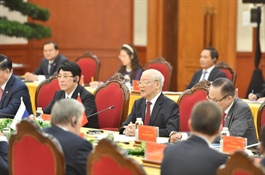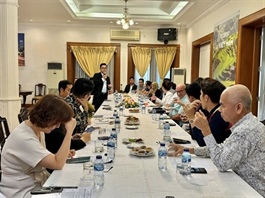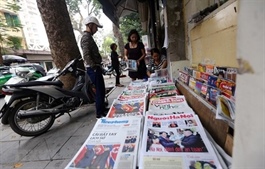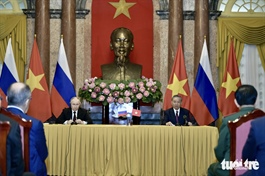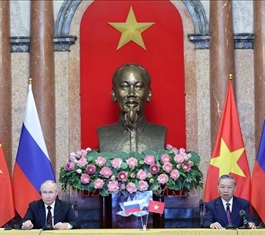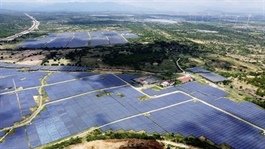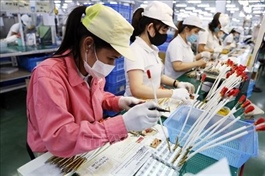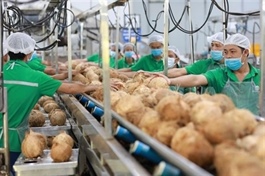Vietnam's economy set for higher GDP growth than regional peers: IMF
Vietnam's economy set for higher GDP growth than regional peers: IMF
Thanks to the efforts of the political system, the people, businesses, and international friends, Vietnam has achieved significant and comprehensive results across all sectors.
After experiencing impressive growth in recent years, Vietnam's economy is projected to continue growing at a higher rate than other countries in the region.
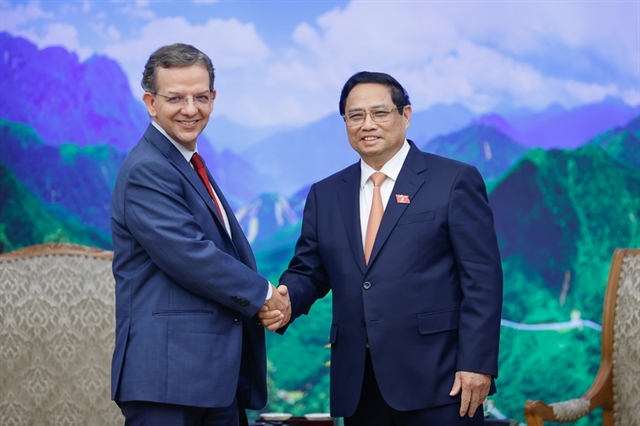
Prime Minister Pham Minh Chinh and Head of the IMF’s Article IV Mission Paulo Medas. Photo: Nhat Bac |
The country, however, will also face challenges and difficulties due to global factors and internal issues such as an aging population and climate change.
Head of the IMF’s Article IV Mission Paulo Medas shared the view during a meeting with Prime Minister Pham Minh Chinh on June 21.
Medas expressed his admiration for Vietnam's socio-economic achievements in recent years, especially in the face of global and regional challenges. He praised the Vietnamese Government's macroeconomic management, inflation control, growth promotion, handling of weak banks, and banking system restructuring.
The IMF's Chief of Article IV Mission for Vietnam recommended that the country continue to improve its institutions, create a transparent business environment, enhance governance, combat corruption, and remove barriers to investment, especially in infrastructure and renewable energy development.
For his part, Prime Minister Pham Minh Chinh expressed his gratitude for the IMF's support, particularly in policy advice. He acknowledged that the global economy in early 2024 still faces risks and challenges affecting the domestic economy.
However, thanks to the efforts of the political system, the people, businesses, and international friends, Vietnam has achieved significant, comprehensive results across all sectors. The macroeconomy remains stable, inflation is controlled, growth is promoted, and major economic balances are maintained. Public, government, and foreign debts are within permissible limits, and the quality of life for the population has improved, he noted.
Chinh added that as a developing country with a transitioning economy and a high degree of openness, Vietnam must choose policies suited to its situation.
“Determined to promote growth while maintaining macroeconomic stability, Vietnam will continue to implement proactive, flexible, timely, and effective monetary policy, harmoniously coordinated with an expansionary fiscal policy,” Chinh said.
According to Chinh, Vietnam is pursuing three strategic breakthroughs: infrastructure development, institutional improvement, and high-quality human resource training. These efforts are aimed at removing development bottlenecks, reducing logistics costs for businesses, enhancing economic competitiveness, creating new development space, and meeting the demand for high-quality labor in emerging fields.
Agreeing with the IMF's recommendations, the Prime Minister stated that to sustain rapid and sustainable growth, the government aims to renew traditional growth drivers—investment, exports, and consumption—while fostering new growth drivers such as the digital economy, circular economy, knowledge economy, and emerging sectors like semiconductors, artificial intelligence, and hydrogen.
Chinh stressed that Vietnam is vigorously promoting public investment, especially in transportation infrastructure, and implementing tax and fee reductions along with other policies to support business development.
Appreciating the effective cooperation between Vietnam and the IMF, he requested continued exchanges and updates on global economic forecasts and their implications for regional economies, as well as macroeconomic policy advice for Vietnam.
The prime minister also called for increased cooperation, technical support, and training in areas such as economic management, budget management, monetary policy, exchange rates, banking management, capital market development, green finance, and expanding human resource training to enhance international integration.
Echoing Chinh's views, Medas reiterated the IMF's willingness to continue supporting Vietnam as requested by the Prime Minister.







